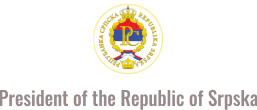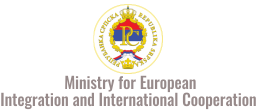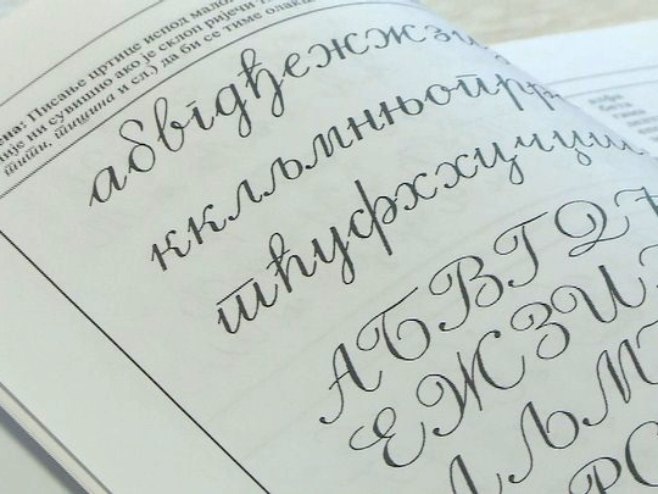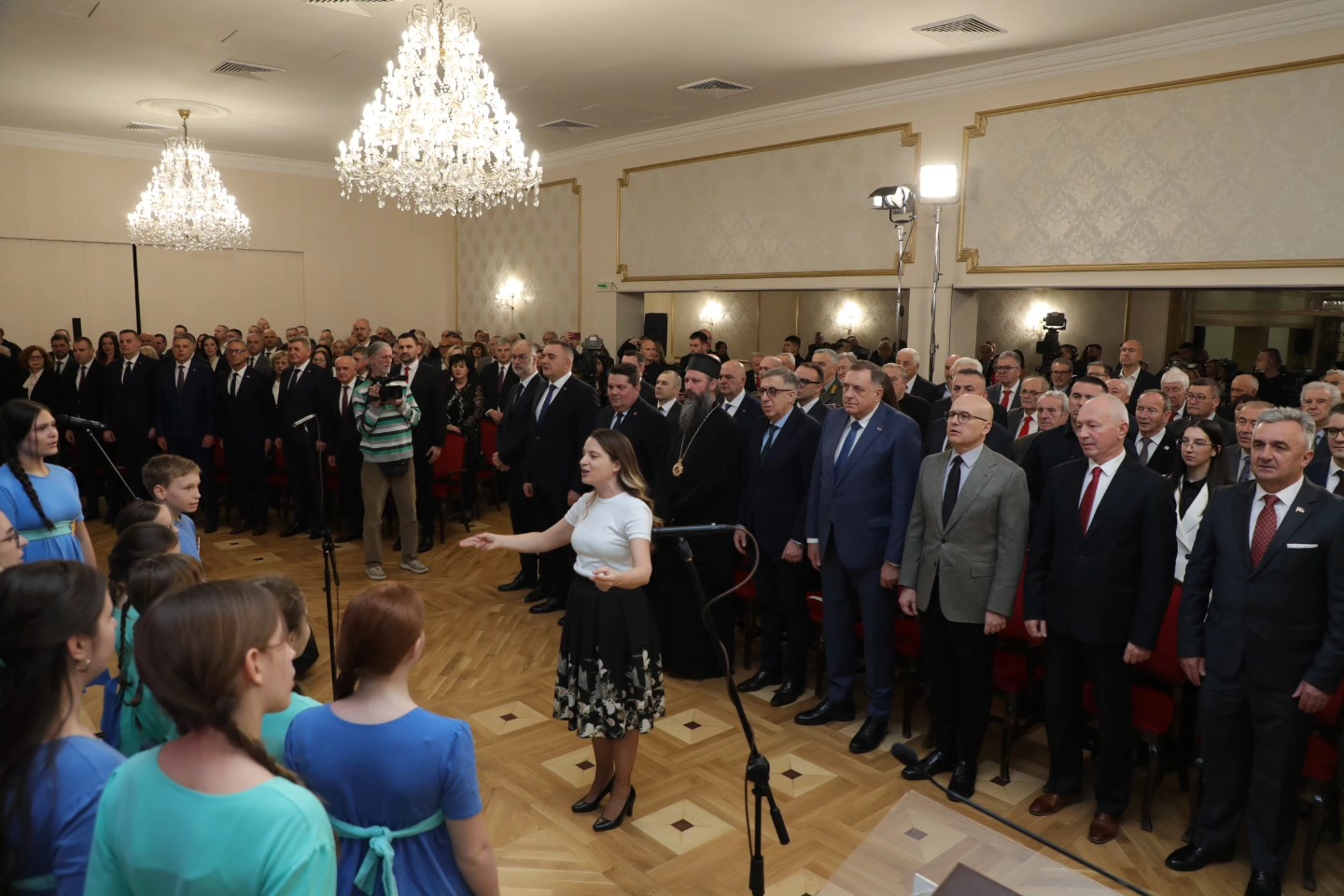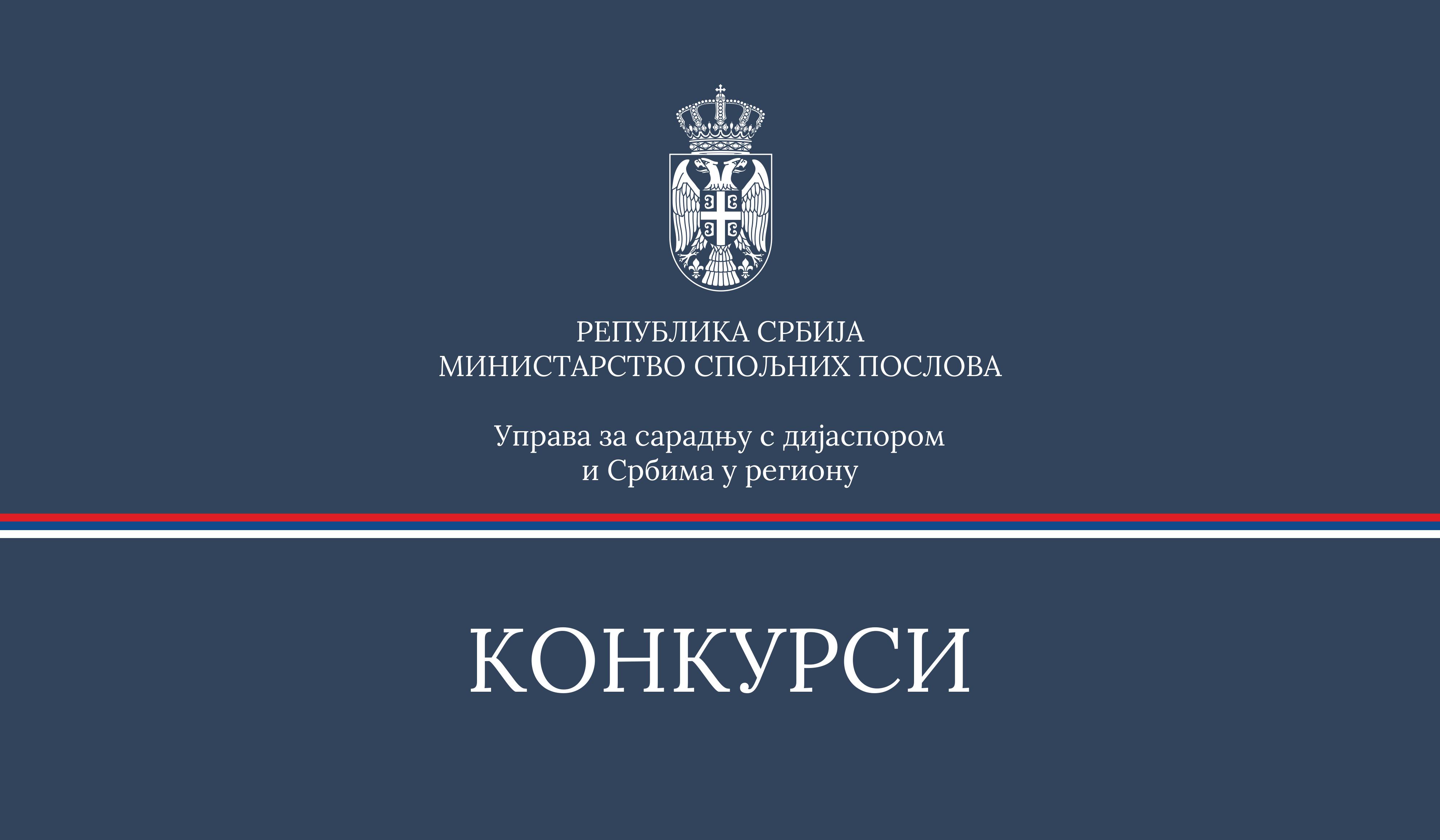One of the strategic orientations of the Ministry of Education and Culture of the Republic of Srpska is to protect and preserve the Serbian language and Cyrillic script, said tonight in Istočno Sarajevo the Assistant Minister of Culture of Srpska, Tanja Đaković.
Đaković said that many initiatives had been launched for that reason, ranging from the Forum on the Cyrillic Script to the signing of the Charter on the single cultural space with Serbia, covering all Serbs everywhere.
She pointed out that Serbs, in their long historical presence, had left traces of tangible and intangible cultural heritage, and that cultural space could not be reduced to the boundaries of one political or state area.
Đaković reminded that one step in the direction of preserving the language of the Serbian people and Cyrillic script was the recent law adoption by the National Assembly of the Republic of Srpska on the Day of Serbian Unity on 15 September, while the Law on Protection of the Serbian Language and Cyrillic Script was adopted in Serbia.
– It is important to note that this law protects the Cyrillic script as a foundation of the national and cultural identity of the Serbian people and treats it as our intangible cultural heritage – said Đaković at the roundtable on the status of the Serbian language and script.
She reminded that Bosniak and Croat clubs in the Council of Peoples had launched the procedure of vital national interest protection regarding this law.
– However, what we can responsibly claim as the drafter, the Ministry of Education and Culture, and the Government as the proponent, is that the law is fully harmonized with the Constitution of the Republic of Srpska, and in accordance with the Dayton competences of Srpska regarding culture. That is an entity competence, and the Republic of Srpska has the obligation and right to protect its intangible cultural heritage – Đaković pointed out.
According to her, the law is fully harmonized with the International Convention for the Safeguarding of the Intangible Cultural Heritage.
In addition to Đaković, speakers at the roundtable included professors of the Pale Faculty of Philosophy, Miloš Kovačević, Milanka Babić and Saša Knežević.
Kovačević mentioned that the Law on the Protection, Preservation and Use of the Language of the Serbian People and Cyrillic Script was a good start that could be easily extinguished if unsupported by new measures.
– Now foundations have been laid to upgrade the status of the Serbian language and Cyrillic script on the basis of the law. Whenever you do not know what is important to you, look at what your enemies think is not good to them. That is, if they say that adoption of the law on the protection of the Cyrillic script and Serbian language is not good, then be sure that the law is good for Serbs, and completely irrelevant for them. The law on the Cyrillic script does not concern anyone except Serbs – not Croats, not Bosniaks, or anyone else – Kovačević pointed out.
He believes that it is necessary to restore the dignity of the Serbian language and Serbian script everywhere, from the media onwards.
– This law should be the basis for expansion, i.e. the possibility of introducing mandatory editing wherever necessary, and mandatory use of the Serbian language at all faculties. It is a shame that today you have more than 40 percent of doctorate holders in the Republic of Srpska who are basically illiterate. They last encountered the Serbian language in primary school in the true sense, and I guarantee that they would not pass the tests that our students need to pass to enroll in secondary school – Kovačević believes.
If there is no Serbian language and connection between the Serbian language and Cyrillic script at all faculties, then it is all empty words, Kovačević notes, adding that it is necessary to show in practice that the Serbian language is actually everywhere where there are Serbs and where they need to be literate.
– On the basis of this law, as an impetus, the state must facilitate return of the Serbian language and Cyrillic script into life. Without that, there is no salvation for the Serbian language, Cyrillic script or Serbian people, especially in BiH – Kovačević concluded.
Babić pointed out that it was necessary to work on developing awareness about the preservation of the Serbian language through the educational system, culture, and that a stronger promotion of the Cyrillic script was needed.
– Unless there is impacting the consciousness of the people, reminding them of and instilling the values that you consider national, it is unlikely that the national identity of the people living here will be preserved. It is not easy to be a Serb in BiH, it is easier to be a Serb in Banja Luka than in Sarajevo. In border areas, we are struggling with the influences of other norms that are very aggressive in the sense that they prevail in BiH speech, especially the Bosniak norm – Babić pointed out.
Babić adds that one of the essential Bosniak political tendencies is to round up BiH on that Bosnian identity.
– They consider us more or less ‘Bosnian Orthodox’. Bosniak linguistics endeavors to prove that we are all speakers of the ‘Bosnian language’ – Babić pointed out.
She mentioned that the function of the script was endangered, and that the ratio of Latin to Cyrillic in public use in the Republic of Srpska was 70 percent in favor of the Latin script.
The roundtable was organized by the Main Library of Istočno Sarajevo and the Department of Serbian Studies at the Faculty of Philosophy in Pale.
Source and photo: RTRS
